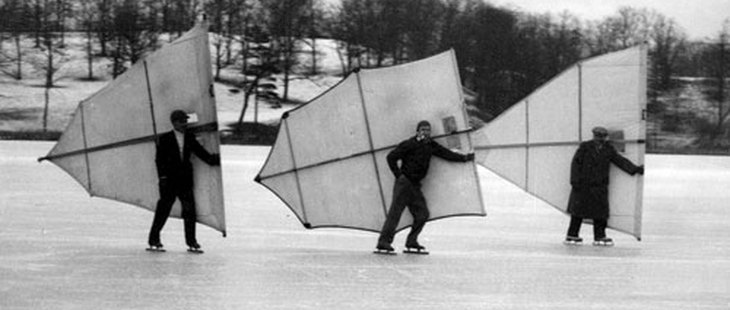
There are two prevailing theories about why Grenadier Pond in High Park is called Grenadier Pond. One is prosaic and one is poetic. Prosaic first. Grenadier Pond is so named because, in the 1800s, a bunch of Grenadiers liked to fish there. Their encampment was near by so it was convenient. That’s it. (By the way, a Grenadier did not, by the early 1800s, handle grenades. Really, they were just the biggest soldiers.) Now (a little) poetic. During the War of 1812 Toronto was a frenzy of activity. Would the Americans attack today? Maybe! Move the forces accordingly. They did not attack today? Well, reconfigure the defenses! Eventually, in April 1813, American forces did successfully attack and capture Toronto. During that attack three Grenadiers crossed Grenadier pond to take up their position. Accounts vary, some say that their boat capsized, others say that while attempting to cross the thin ice, they fell in. Either way, they drowned and died. Their bodies never discovered. A fact that lent some credence to the unlikely theory that the pond is bottomless: water for a few dozen feet, then soft mud all the way down. In any case, the Toronto of the 1800s memorialized their loss. A massive game of historical broken telephone contorted and enlarged the story into an unlikely legend: that a whole company of Grenadiers undertook a risky retreat to minimize the efficacy the American attack. But they all died when the ice broke. No doubt the legend kept the name alive. The name has now proliferated, attaching itself to a local restaurant, a road, a dental clinic, a retirement home, a convenience store and an investments company. The first residents of the High Park area also likely made sure the name was kept alive. In the wake of the Rebellion of 1837 the colonial authorities rewarded their most loyal supporters with tracts of land in, what is now, Roncesvalles. Good tory citizens no doubt loved good military legends. By and large, however, Grenadier Pond has had a sleepy existence. In the winter residents would cut ice from its surface for their cold storage needs (Grenadier Pond ice was much cheaper than the alternative: ice shipped in from Lake Simcoe – next time you look at picture of an old billboard in Toronto check to see if it’s advertising Lake Simcoe ice. The company was one of the city’s largest advertisers for a period.) In the summer they would, and do, go fishing. The one exception was in the 1835 or 1836. Sir Francis Bond Head, the most extraordinary of colonial administrators, had just arrived and taken charge of Government House. Eccentric, haughty and inexperienced he neglected many of his duties and did his damndest to provoke Upper Canada’s radicals. Historians have long since wondered whether he was appointed Lieutenant Governor because of historical fluke: he shared a name with another, more experienced and level headed Bond Head. No matter, however. Bond Head loved horses. After being recalled from his tenure in Upper Canada (he had provoked a rebellion) no one ever hired him again, and he supported himself by writing books, especially about riding and horse races. In Canada, instead of doing his work, he went for hours long rides. His route was predictable. Every day he left Government House (roughly located at Roy Thompson Hall) and rode to Grenadier Pond. One day he came across a hunting party. Well, a hunting party of a sort. The men were digging up the sand around Grenadier Pond in search of turtle eggs. Bond Head was appalled to learn that they also planned to eat the turtle that laid the eggs and offered them money in exchange for her life. While this odd transaction occurred he noticed that the hunters had also restrained a distraught man. Declared insane by the party, they said that he had tried to kill himself in the pond. In what maybe the first ever instance of someone being committed, against their will, by state power to a medical institution Bond Head ordered the man escorted to the Toronto hospital where, in turn, he ordered the doctors care for him. Within twenty-four hours, however, the man escaped and drowned himself in the pond. A brief reminder of the macabre reason for the pond’s name, or at least its staying power. __ Simon Wallace writes our Standard Historical Society column each week.














